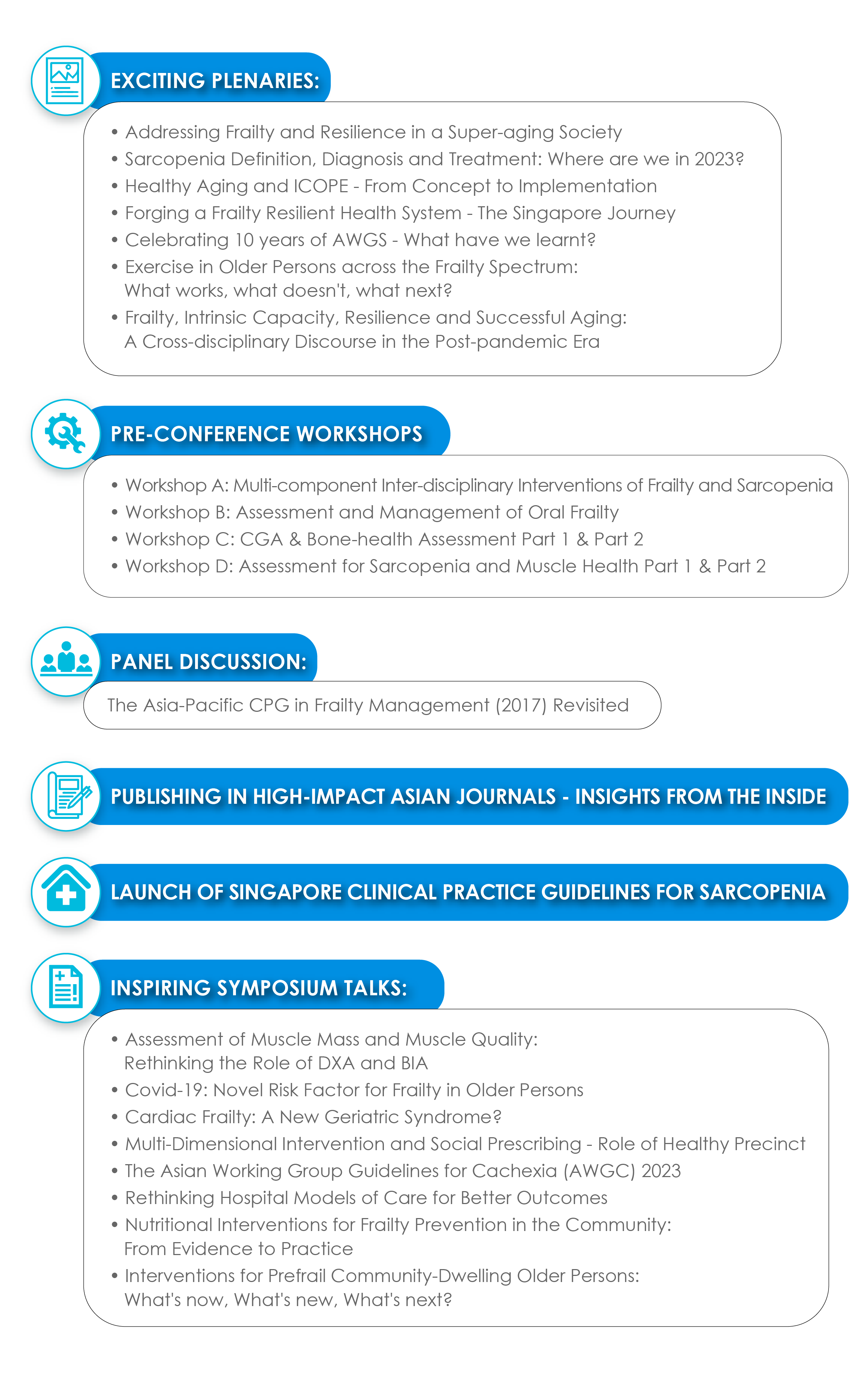Lunch Symposium Sponsored by Abbott
Preventing and Addressing Sarcopenia in Community Dwelling Older Adults in Singapore
The SHIELD Study: highlighting the impact of specialised nutritional intervention on muscle health and clinical outcomes in community dwelling older adults at risk of malnutrition.
– A/Prof Samuel CHEW Teong Huang, Singapore
The Strengthening Health in ELDerly through nutrition (SHIELD) Study is one of the largest randomised controlled clinical trials in community dwelling older adults at medium or high risk of malnutrition, as defined by the Malnutrition Universal Screening Tool (MUST), in Asia Pacific. We examined the impact of specialised oral nutrition supplementation containing HMB plus dietary counselling versus a placebo plus dietary counselling on muscle health and clinical outcomes in 811 participants aged sixty-five and above over a period of intervention of 6-months, with follow-up data at 12-months. We will share the results of the study, in the context of a rapidly ageing population not only in Singapore but Asia as a whole, whom are all at risk of the deleterious and disabling effects of malnutrition, sarcopenia and frailty.
The outcomes data will include the primary composite outcome consisting of survival without hospital (re)admission and with at least 5% weight gain at 6-months, as well as secondary outcomes data such as dietary intake, nutritional, and functional outcomes at 6-months. For the follow-up at 12-months, we will present data on the primary composite outcome, as well as the number of sick days, emergency department visits and outpatient polyclinic visits.
We will briefly review some of the current literature on the interplay between nutrition, muscle health, and frailty, and why early identification and intervention of older adults at risk of malnutrition are crucial to reduce the risk and slow down the progression of sarcopenia and frailty in this ever expanding and vulnerable population.
We will also present a summary of the results of the NOURISHED and EFFORT clinical trials, and how together with the SHIELD study, we have good quality data on how we can help our patients at risk or with malnutrition, across the continuum of care in hospital and in the community, have the best clinical and functional outcomes.
The time for an active approach, using a treat to target individualised approach, is now.












